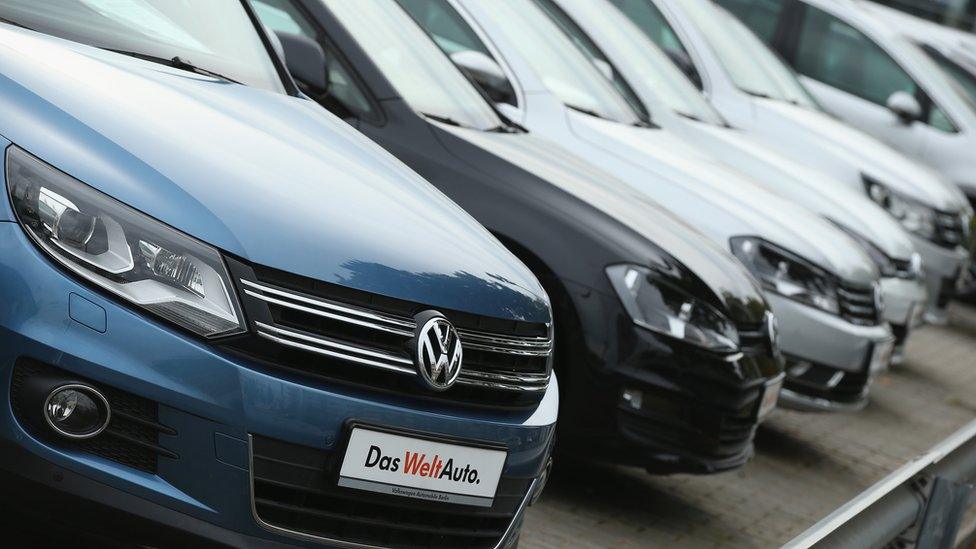Ex-Volkswagen executive pleads guilty in emissions case
- Published

A former Volkswagen executive has pleaded guilty for his role in the German automaker's scheme to cheat US emissions requirements for diesel cars.
Oliver Schmidt, a former head of VW's engineering and environmental office in the US, admitted to participating in an attempted cover-up after regulators raised questions the "defeat devices".
He faces up to seven years in prison, and up to $400,000 (£306,000) in fines.
The scandal has cost Volkswagen as much as $25bn.
US prosecutors say Volkswagen installed special software in certain diesel vehicles that allowed them to perform better during emissions tests than they did under normal driving conditions.
The emissions were sometimes 30 times higher than permitted under US rules.
Volkwagen sold almost 600,000 vehicles with the devices in the US between 2006 and 2015, and about 11 million globally. The allegations have also prompted probes in other countries.
Volkswagen: The scandal explained
VW papers shed light on emissions scandal
Diesel cars: What's all the fuss about?
Mr Schmidt was informed that the devices had been installed in 2015, after a nonprofit in the US exposed discrepancies and regulators confronted the company, according to court filings.
Mr Schmidt, who was arrested while travelling in Miami, was one of six people charged related to the scheme in January. The others live in Germany.
The US also charged a former manager at Audi - which is part of Volkswagen - in July.
A Volkswagen engineer last year pleaded guilty on related charges. His sentencing is expected later this month.
Mr Schmidt, who admitted to conspiring to defraud the US and violating the Clear Air Act, is scheduled to be sentenced in December.
In exchange for Ms Schmidt's guilty plea, US prosecutors dropped a charge of wire fraud. Mr Schmidt also agreed to deportation after his release.
Volkswagen has agreed to pay more than $4bn in fines in the US and to spend up to $25bn to satisfy claims from owners and others.
The emissions scandal in the US contributed to a wider backlash against diesel-powered cars, which were once believed to be more environmentally friendly. Four major cities have moved to ban such vehicles by 2025.
Volkswagen was also recently accused of teaming up with other carmakers in a breach of EU cartel rules.